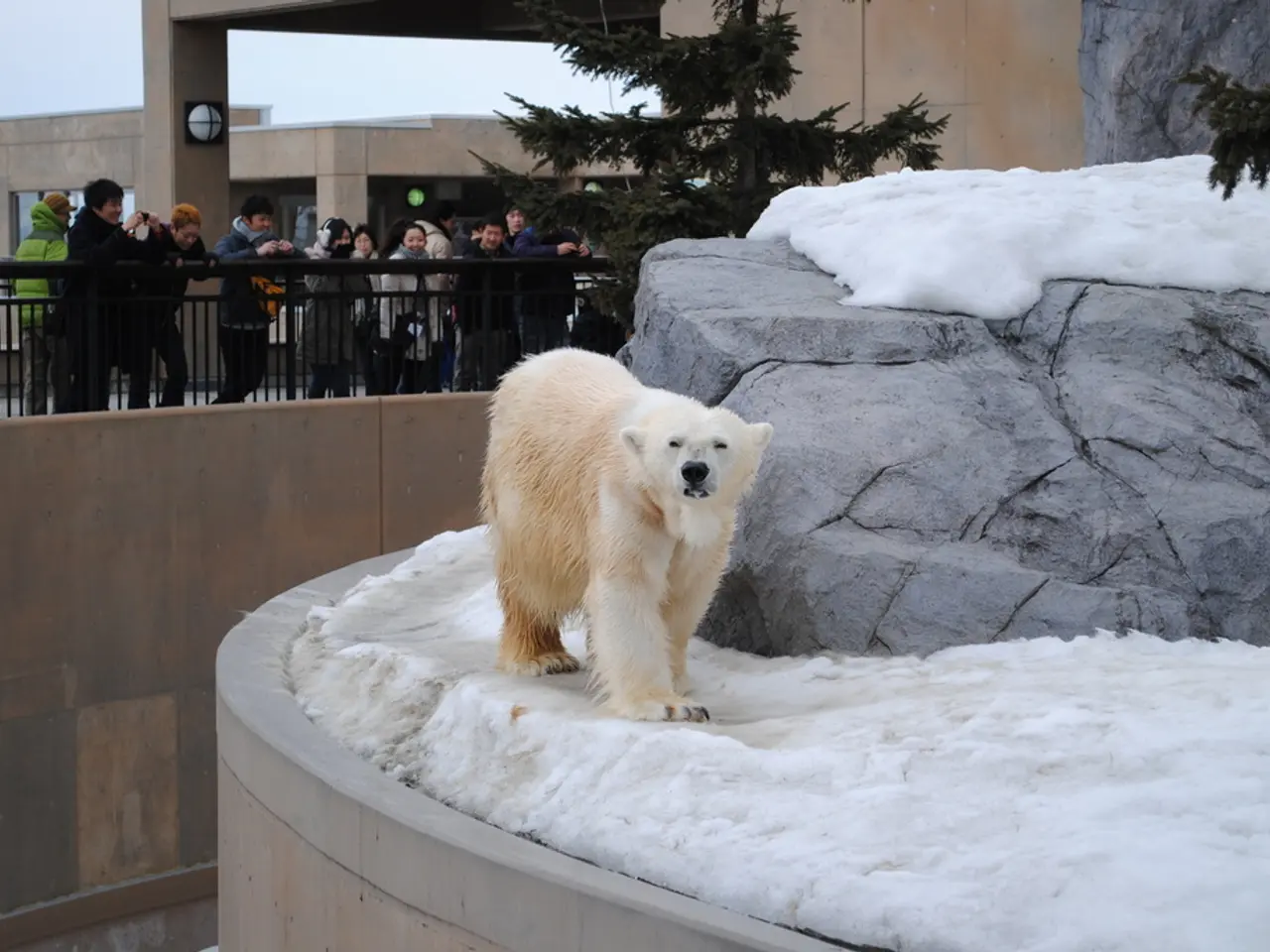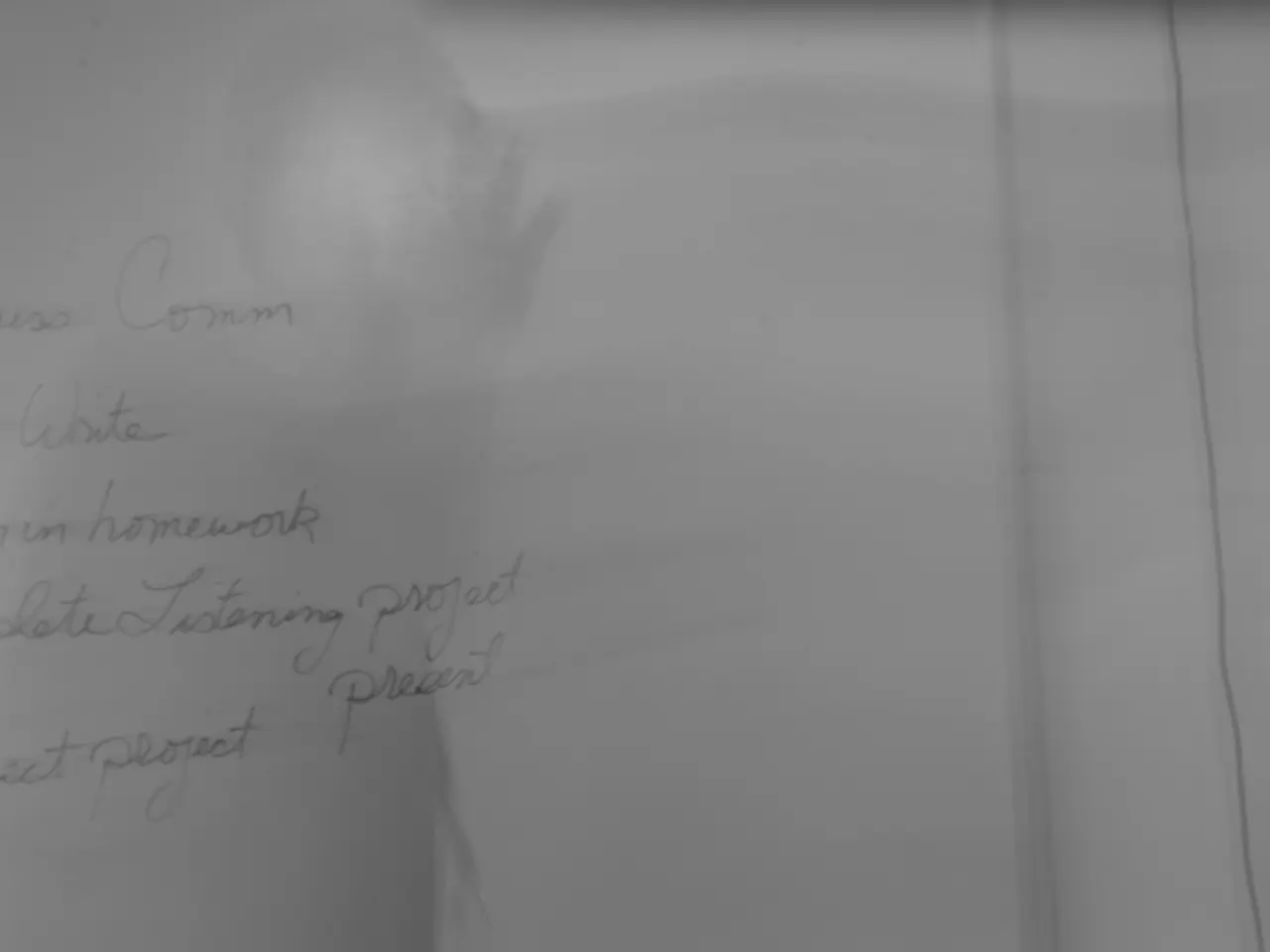Railway Mishaps in Riedlingen: Strategies to Prevent Future Incidents
German Train Derailment: Three Dead and Over 40 Injured
A tragic train accident occurred near Riedlingen, Baden-Württemberg, on Sunday evening, resulting in the death of three individuals, including the train driver and another railway employee. At least 41 people were injured, some severely, with around 100 passengers on board at the time of the incident.
The regional express train RE55 derailed around 6:10 PM, prompting an immediate response from emergency services, including the Federal Police Stuttgart, firefighters, and rescue services. Hundreds of emergency services, including medical professionals, rescue helicopters, and units of the Bavarian Red Cross, were on site to attend to the situation.
Two train wagons jumped off the tracks, one tipped over, and a train axle was found several meters away. The exact cause of the derailment is still under investigation, with the police confirming that an overflowing manhole due to heavy rain likely caused a landslide, leading to the derailment. However, it is still unclear whether there were any prior indications of a risk on the track.
The new police assessment suggests that an overflowing shaft and a resulting landslide could have caused the accident, but further investigation is required to confirm this. Rail CEO Richard Lutz plans to travel to Riedlingen on Monday morning to assess the accident site and thank the emergency services for their efforts.
The Federal Chancellor, Friedrich Merz, Baden-Württemberg's Minister President, Winfried Kretschmann, and Transport Minister, Patrick Schnieder, have expressed their condolences for the accident. They have also emphasised the need for improved infrastructure resilience to withstand extreme weather events, which are expected to occur more frequently in the future.
Experts will reconstruct the accident and evaluate the infrastructure in the coming days. Technical solutions to prevent train accidents due to landslides or mudslides involve early detection, real-time monitoring, and infrastructure resilience measures. Key approaches include real-time rockfall and landslide monitoring systems, InSAR technology, environmental and storm monitoring sensors, heavy rainfall strategies and culvert maintenance, rapid emergency response and track clearance, and regular inspections and clearance work.
Deutsche Bahn is handling traffic between Herbertingen and Sigmaringen, while SWEG is handling traffic between Ulm and Munderkingen. The track between Munderkingen and Herbertingen remains closed, and a replacement bus service has been set up. It is unclear when the RE55 line will be able to operate again.
This incident bears similarities to a previous one that occurred in April 2024 in Ratingen-Hösel, where a slope slipped, severely damaging supporting walls, cable shafts, and overhead lines. The track is still not in operation but is expected to be by December 2025. Mudslides regularly end up on the tracks, but solutions such as early warning systems based on LIDAR technology, retaining walls, reinforced slopes, functional drainage systems, protective nets, and fences can prevent severe accidents.
[1] European Railway Agency. (2020). Landslides and Derailments: Technical Measures for Prevention and Mitigation. [2] European Union Agency for Railways. (2021). Landslide Monitoring and Early Warning Systems. [3] European Space Agency. (2022). InSAR Technology for Monitoring Railway Corridors. [4] Deutsche Bahn. (2023). Environmental and Storm Monitoring Sensors for Railway Safety. [5] European Union Agency for Railways. (2024). Rapid Emergency Response and Track Clearance.
- The German train derailment, which caused three deaths and over 40 injuries, has prompted discussions about the need for improved infrastructure resilience to withstand extreme weather events.
- Experts are examining technical solutions to prevent train accidents due to landslides or mudslides, such as real-time rockfall and landslide monitoring systems, InSAR technology, environmental and storm monitoring sensors, heavy rainfall strategies, and culvert maintenance.
- The Federal Chancellor, regional officials, and Transport Minister are expressing condolences for the derailment and emphasizing the importance of addressing infrastructure vulnerabilities to prevent similar accidents in the future.
- Investigations reveal strong similarities between the Riedlingen derailment and a previous accident in Ratingen-Hösel, highlighting the need for effective early warning systems based on LIDAR technology and other protective measures to guard against mudslides on the tracks.




